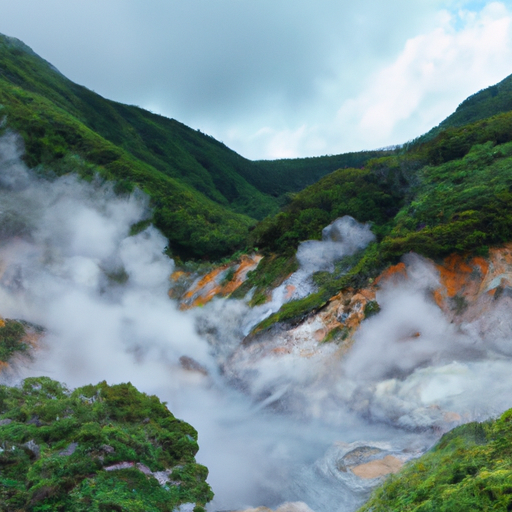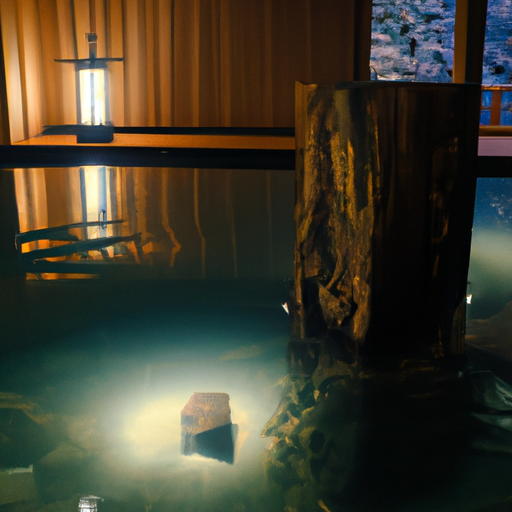Japan Tourism Onsen Guide for Foreigners! Tattoos OK?

When visiting Japan, it is definitely recommended to experience the hot springs that can be enjoyed along with the abundance of nature. Japanese hot springs are diverse in the composition and benefits of their sources, and there are more than 3,000 hot spring resorts in Japan alone, many of which are world-famous.
However, some onsen facilities prohibit the use of tattoos. This comes from the social background and customs of Japan, and the main reason is that tattoos are associated with the yakuza (gangsters).
In recent years, however, an increasing number of onsen facilities have begun to accept tattoos for foreign visitors. Especially in urban areas such as Tokyo and Osaka, as well as in some tourist spots, the number of tattoo OK facilities is increasing due to their welcoming attitude toward foreign visitors.
In this article, we will introduce measures against tattoos in onsen and recommended onsen so that foreigners can stay comfortably and enjoy onsen with peace of mind.
The Relationship between Japanese Onsen Culture and Tattoos

Tattoos and Japanese Onsen
Japan is home to numerous beautiful hot springs, each with its own unique characteristics. However, there is one thing that foreign travelers need to be aware of. That is whether or not you can enter an onsen facility if you have a tattoo.
Tattoos are generally not considered desirable in Japanese hot spring culture. This is because they have long been associated with yakuza and anti-social groups. For this reason, many onsen facilities restrict bathing to people with tattoos.
Variety of responses and exceptions to the rule
Recently, however, special rules and exceptions have been made for foreign visitors. This is a result of taking into account the fact that tattoos are accepted as popular culture and art expression in other countries.
Some spa facilities allow people with tattoos to bathe. However, conditions may apply. For example, you may need to use a cover-up to hide large tattoos or cover them with a plastic band-aid.
Some facilities also apply the tattoo OK rule on certain days and during certain hours. This is done to ensure that foreign visitors can also enjoy the onsen without disturbing the general clientele.
Preliminary checks and precautions
These rules and exceptions are not standardized throughout the Japanese hot spring industry. Therefore, we recommend that you check the websites or guidebooks of onsen facilities before your trip. Especially in large cities and popular tourist destinations, the number of facilities where tattoos are allowed is increasing.
A further point to note is that there may be restrictions on bathing even if the tattoo is not visible. In these cases, the receptionist may ask you if you have a tattoo. It is important to answer truthfully. Providing false information may cause inconvenience to other guests and facility staff.
In addition to onsen facilities, public swimming pools and gyms may also have similar restrictions. Since prejudice against tattoos still persists in Japan, some general facilities may require that tattoos be used without showing them.
【The relationship between Japanese hot spring culture and tattoos】
The relationship between Japanese onsen culture and tattoos is complex. While some facilities have restrictions on bathing, there are special exceptions for foreign visitors. Overall, however, tattoos are still not accepted, so be sure to observe your own tattoo rules and etiquette when visiting Japan.
How to prevent tattoos in hot springs
These days, tattoos are accepted by foreigners as a form of fashion and individual expression. As a result, many spa facilities have relaxed their strict tattoo bathing restrictions.
Here, we will explain in detail how to countermeasure against tattoos so that foreigners can enjoy Japanese hot springs in peace.
1. Confirmation in advance.
The first measure is to look for tattoo OK onsen facilities on the Internet or in travel guidebooks. Especially in large cities and around tourist attractions, the number of tattoo OK hot springs for foreigners tends to increase.
2. Cover up with tattoo cover stickers.
The second method of countermeasure is to use tattoo cover-up sheets or stickers. These can be applied to the skin to cover up tattoos. Some spa facilities offer these cover-up items, but you can also prepare your own.
▶︎ I recommendclick here.
3. Choose a spa facility with private rooms.
Furthermore, a third way to prevent this is to choose a private onsen facility or an accommodation with an open-air bath. These facilities generally have relaxed restrictions on tattoo bathing, allowing you to enjoy the hot springs without having to worry about other guests.
【 How to prevent tattoos in hot springs 】
Even onsen facilities with tattoo bathing restrictions may have staff who speak English or other foreign languages. By consulting with them, you can find out the rules regarding tattoo bathing and how to counter them. It may also be sufficient to simply ask in Japanese, "Are tattoos OK?" in Japanese may be sufficient.
These are some of the ways to prevent tattoos when enjoying hot springs in Japan. However, it is important to gather information and communicate with local staff beforehand, as rules and measures may differ depending on individual onsen facilities.
How to enter hot springs and rules

There are certain rules that apply to onsen in Japan. Understanding them will make your onsen experience more enjoyable, so be sure to check them out before entering an onsen.
Preparation before bathing
- Tattoo identification: Cover up your tattoo with a tattoo cover-up sheet or sticker. Smaller tattoos may be allowed.
- take a shower: Before entering the hot springs, be sure to shower and cleanse your body. Shampoo and body soap are provided at some facilities, or you may bring your own.
How to enter a hot spring
- Entering Slowly: The water temperature of hot springs is often high, so take your time while acclimating your body. Be especially careful not to enter the deep part of the hot spring too abruptly so as not to strain your heart.
- No washing up in the bathtub: It is strictly prohibited to wash your body or use shampoo in a hot spring bathtub. Please wash your body properly in the shower before taking a bath.
- Avoid long baths: Taking a hot spring bath for too long may cause dehydration and dizziness. Be sure to bathe for an appropriate amount of time.
- Hair is put together.: Long hair should be tied to avoid immersion in the bathtub or use a bath cap.
important point
- Quiet in the bathtub.: Shouting, diving, or jumping in the bathtub is prohibited. Please be quiet so as not to disturb other bathers.
- No Taken PhotosPhotography is not permitted in most spa facilities. Respect privacy.
- Alcohol consumptionUse of the hot springs is dangerous if you have consumed alcohol. Enter with caution, especially after drinking, as blood pressure fluctuates easily.
What you need to bring
For a one-day visit
- (hand) towel:
- Bath towel (for wiping yourself)
- Face towel (for washing body in the hot spring)
- Shampoo and body soap: Many facilities provide this service, but bring your own if you want to use something that fits your skin.
- change of clothes: Changing clothes after getting out of the spa.
- moisture: Soaking in a hot tub can easily dehydrate you, so you need a drink to rehydrate yourself.
- coinsFees: Used to pay for drinks, meals, and lockers at the facility.
When visiting a hot spring at a lodging facility
- Yukata (yukata) and towelsMany accommodations provide yukata (Japanese bathrobes) and towels.
- personal effects: In particular, you may bring your own shampoo, conditioner, and body soap for personal use.
【 How to enter hot springs and rules 】
Onsen in Japan are a great opportunity to experience pleasant hot water, beautiful nature, and Japanese culture. Please follow the rules and enjoy the best onsen experience possible!
Top 5 Japanese Onsen with Tattoos OK

Here are some recommended hot springs where tattoos are OK.
1. Hokkaido: Noboribetsu Onsen
Noboribetsu Onsen in Hokkaido is known for its beautiful scenery and high-quality hot springs. You will also find many facilities here that allow tattoos. In particular, people with tattoos are welcome at facilities such as Hotel New Otani Noboribetsu and Noboribetsu Mariage.
2. Hakone: Hakone-Yumoto Onsen
Hakone-Yumoto Onsen, located in Kanagawa Prefecture, also has facilities where tattoos are allowed. Here, tattooed people can not only enjoy the hot springs, but also the beautiful natural environment and many tourist attractions.
3. Izu: Shuzenji Onsen
Located in the Izu region of Shizuoka Prefecture, Shuzenji Onsen is known for its beautiful scenery and historical value. Again, there are several facilities where tattoos are allowed, allowing people with tattoos to relax and bathe.
Gifu: Shirakawa-go Hot Spring
Located in Gifu Prefecture, Shirakawa-go is a beautiful village registered as a World Heritage site. There are numerous hot spring resorts in the area, among them the Shirakawa-go Onsen, where tattoos are allowed. In addition, the scenery around Shirakawa-go is extremely beautiful and popular among tourists.
Fukushima: Bandai Atami Onsen
Located at the foot of Mount Bandai in Fukushima Prefecture, Bandai Atami Onsen is known for its beautiful natural surroundings and high-quality hot springs. Here, too, there are facilities where tattoos are allowed, allowing people with tattoos to relax and bathe.
【 Tattoo OK Japanese Onsen Top 5】
These spa destinations are ideal for people with tattoos. However, it is also important to be mindful of the rules of other guests and facilities, and to observe good manners and etiquette. For example, you should cover your tattoo with a towel or bandana to avoid disturbing others.
These are the Top 5 recommended hot springs in Japan where tattoos are allowed. We hope you enjoy a relaxing and enjoyable bathing experience!
summary
Japanese hot springs are an attractive experience for foreigners. With more and more facilities now accepting tattoos, more and more foreign visitors can enjoy the Japanese onsen culture. However, it is important to visit with good manners and rules.
Tattoo culture is not yet common in Japan, but the trend of acceptance is gradually spreading. We hope that more and more hot springs and public facilities will become tattoo-friendly in the future.
Enjoy Japanese onsen culture to the fullest, but don't forget to be considerate of those around you!
Your support will help us!
Thank you for visiting Goandup Picks. Our mission is to provide you with more useful information to show the world what Japan has to offer.
Your support will help us to further enhance our activities, so please support us!






